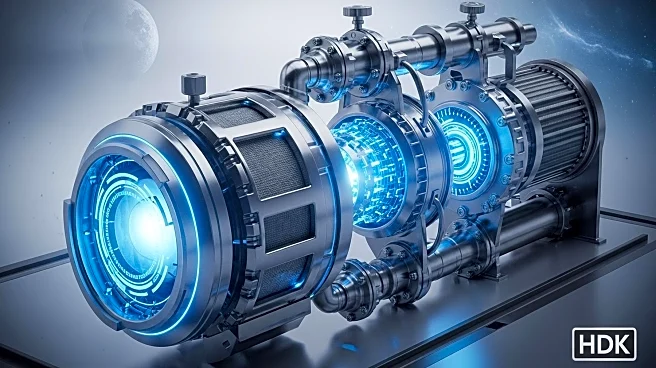What's Happening?
NASA's filtration technology, crucial during the Apollo 13 mission, is evolving to meet the demands of future space exploration and Earth industries. Filtration systems are becoming more intelligent, integrating sensors and IoT technology to analyze contaminants and predict maintenance needs. This advancement is essential for long-duration space missions, where filters must withstand harsh conditions and operate autonomously. The technology is also being applied on Earth, improving efficiency and reducing costs in various industries.
Why It's Important?
The development of advanced filtration systems has significant implications for both space exploration and terrestrial industries. In space, reliable filtration is critical for mission success and astronaut safety, while on Earth, it enhances productivity and compliance with environmental regulations. Industries benefit from reduced downtime, lower costs, and improved workplace safety. As filtration technology becomes more sophisticated, it supports sustainable practices and helps companies avoid fines related to emissions and contaminants.
What's Next?
Future filtration systems will likely incorporate more automation and predictive intelligence, allowing them to self-clean and adapt to changing conditions without human intervention. This will be crucial for space missions and industries facing labor shortages or high operational demands. The continued integration of smart technology in filtration systems will drive innovation and efficiency, supporting sustainable development and resource management.
Beyond the Headlines
The evolution of filtration technology highlights the importance of modular and interoperable systems, especially in crisis situations. As industries and space missions face unexpected challenges, adaptable filtration solutions will be key to maintaining operations and ensuring safety. The lessons learned from space exploration are being applied to Earth industries, promoting resilience and sustainability.










